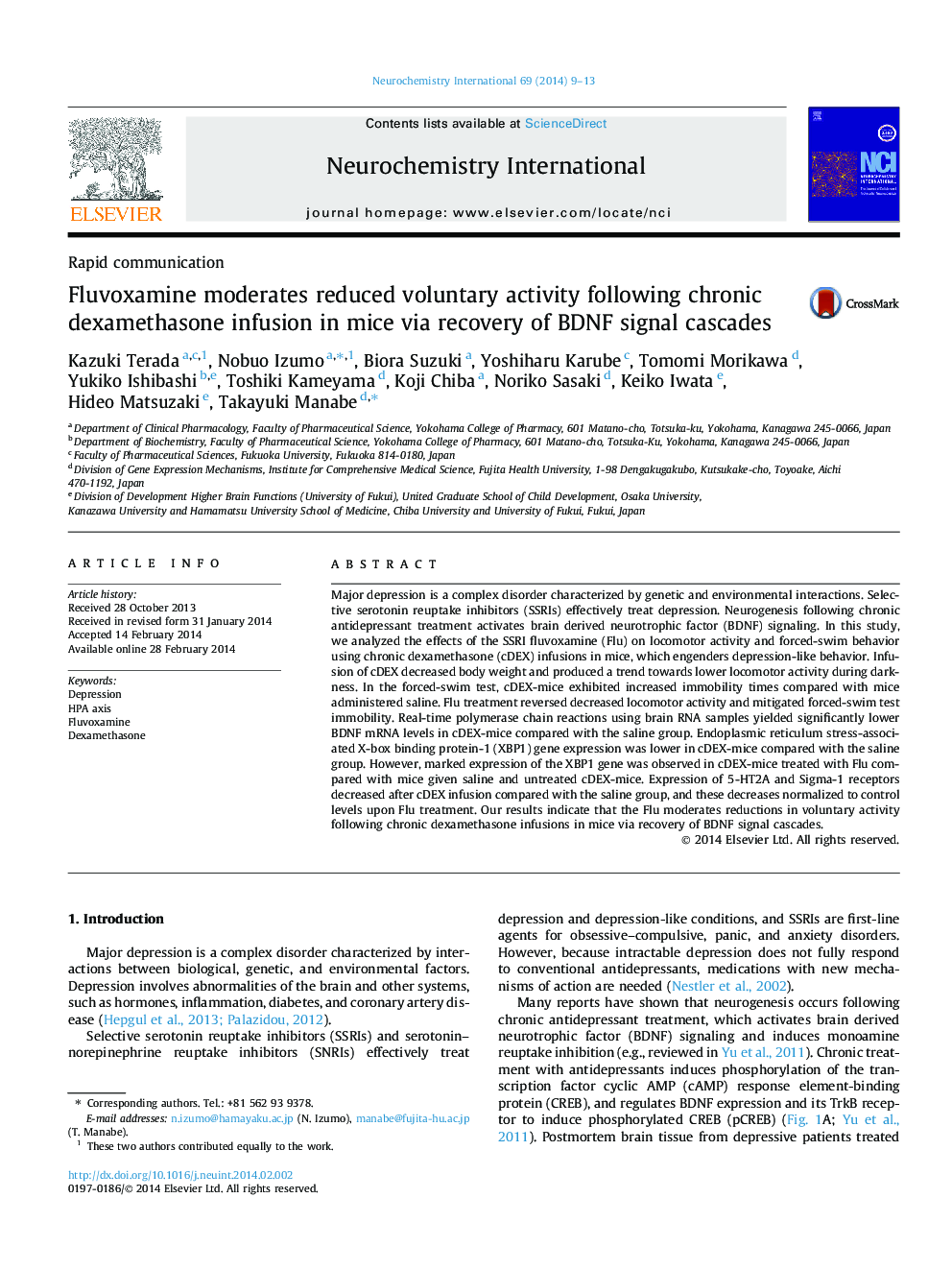| Article ID | Journal | Published Year | Pages | File Type |
|---|---|---|---|---|
| 2200608 | Neurochemistry International | 2014 | 5 Pages |
Major depression is a complex disorder characterized by genetic and environmental interactions. Selective serotonin reuptake inhibitors (SSRIs) effectively treat depression. Neurogenesis following chronic antidepressant treatment activates brain derived neurotrophic factor (BDNF) signaling. In this study, we analyzed the effects of the SSRI fluvoxamine (Flu) on locomotor activity and forced-swim behavior using chronic dexamethasone (cDEX) infusions in mice, which engenders depression-like behavior. Infusion of cDEX decreased body weight and produced a trend towards lower locomotor activity during darkness. In the forced-swim test, cDEX-mice exhibited increased immobility times compared with mice administered saline. Flu treatment reversed decreased locomotor activity and mitigated forced-swim test immobility. Real-time polymerase chain reactions using brain RNA samples yielded significantly lower BDNF mRNA levels in cDEX-mice compared with the saline group. Endoplasmic reticulum stress-associated X-box binding protein-1 (XBP1) gene expression was lower in cDEX-mice compared with the saline group. However, marked expression of the XBP1 gene was observed in cDEX-mice treated with Flu compared with mice given saline and untreated cDEX-mice. Expression of 5-HT2A and Sigma-1 receptors decreased after cDEX infusion compared with the saline group, and these decreases normalized to control levels upon Flu treatment. Our results indicate that the Flu moderates reductions in voluntary activity following chronic dexamethasone infusions in mice via recovery of BDNF signal cascades.
